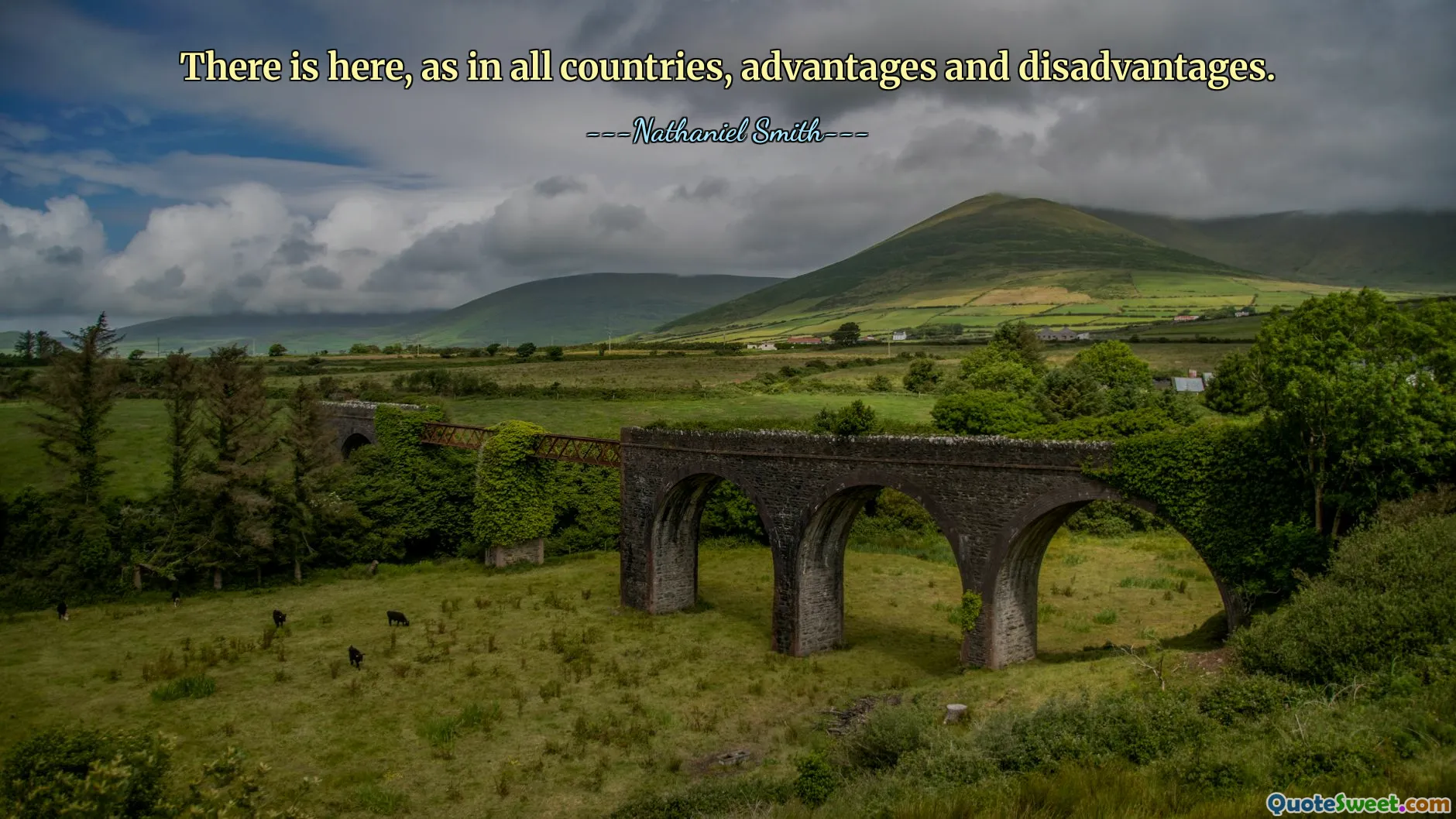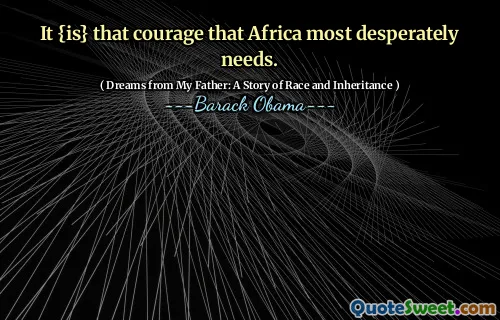
There is here, as in all countries, advantages and disadvantages.
This quote encapsulates a fundamental understanding of the human experience and societal structures. It reminds us that no matter where we are in the world, circumstances are rarely entirely positive or entirely negative. Instead, every situation or condition carries its own set of benefits and drawbacks that must be weighed carefully. Recognizing this balance is essential for making informed decisions and fostering realistic expectations. It encourages a mindset of acceptance and adaptability, emphasizing that challenges are often accompanied by opportunities for growth, and vice versa. By acknowledging both the advantages and disadvantages inherent in any context, individuals and societies can approach problems with a nuanced perspective rather than through oversimplified dichotomies. This idea also fosters resilience; understanding that hardships are balanced by benefits can motivate perseverance and optimism. Moreover, it promotes fairness and openness in evaluating different cultures and systems, acknowledging that what may be a disadvantage in one context might be an advantage in another. This perspective promotes humility and open-mindedness, reminding us that judgment should be tempered by awareness of complexity. Ultimately, the quote advocates for a balanced approach to life and governance, urging us to see beyond absolutes and appreciate the multidimensionality of every situation. It also encourages us to seek improvements without falling into defeatism, and to celebrate successes without arrogance—recognizing both as parts of the broader human condition.










